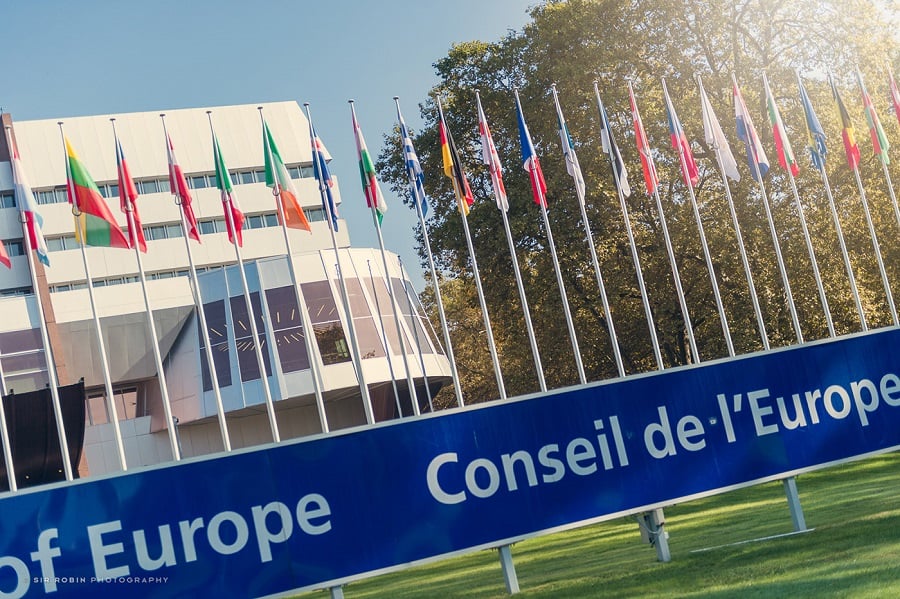Strasbourg, 18.11.2024 – Azerbaijan as a multi-ethnic country strives to promote ethnic cultural, linguistic and religious tolerance and respect. Most national minority cultures are celebrated, and religious tolerance and interreligious dialogue are high on the government’s agenda. The rights of persons belonging to national minorities are protected in the Constitution and under a multiculturalism policy. However, this alone is insufficient to guarantee full and effective equality of rights. Moreover, restrictions on the freedoms of expression, assembly and association limit the possibilities of persons belonging to national minorities to effectively enjoy their rights. Immediate action must be taken to address the situation following the Karabakh conflict. These are among the key findings of the new opinion by the Advisory Committee on the Council of Europe’s Framework Convention for the Protection of National Minorities (see summary of the report in Azerbaijani).
In its opinion, the Advisory Committee notes that while legislation criminalising incitement to national, racial, or religious hatred and hostility exists, only very few cases are reported. The authorities explain this with the good climate of interethnic understanding, but the Advisory Committee observes that this can also be due to a lack of knowledge of the legal remedies available or of trust in the authorities.
The 2021 Law on Media increases restrictions on media freedom, and the 2014 Law on NGOs and the 2022 Law on Political Parties are detrimental to the freedom of expression and freedom of association of persons belonging to national minorities, the Advisory Committee notes. Civic activism by persons belonging to national minorities is negatively affected by reports of ongoing detention of civil society representatives, human rights defenders, political activists, journalists, and lawyers, including from national minorities. Several articles of the 2022 Law could prevent the establishment of political parties promoting rights and participation of national minorities. As a recommendation for immediate action, the Advisory Committee urges again the authorities to bring legislation and practice of NGO registration and operation in line with European human rights standards, so that all persons belonging to national minorities can effectively enjoy the freedom of association.
Some media exist in minority languages, but programming is insufficient and there is a lack of funding for media projects run by minorities themselves. The use of minority languages in contact with the administration is not enshrined in law and is limited to ad hoc and oral communication. The officially established list of names to be banned for new-born babies to protect them from “ridicule, revulsion, and humiliation” includes names popular among persons belonging to national minorities and should be reviewed.
Read also
In the field of education, while acknowledging that many national minority languages, including numerically smaller ones, are taught at the primary education level, the Advisory Committee urges the authorities to increase the offer of teaching of minority languages, including of numerically smaller minorities, in the general curriculum at primary and secondary levels, not only in territories in which these minority languages are traditionally used but also where persons belonging to national minorities live in substantial numbers. Besides, efforts to review educational materials to address stereotypical and negative portrayal of minorities are needed and attention should also be paid to reflect the historic presence of Armenians in Azerbaijan.
In this opinion, the Advisory Committee assesses, for the first time, the situation in the Karabakh region. During this monitoring cycle, Azerbaijan reestablished its effective control over Karabakh, as well as seven adjacent districts. At the same time, following an almost ten-month blockade of the Lachin corridor, the military operation of the Azerbaijani authorities in September 2023 and the sudden reopening of the corridor, more than 100 000 Armenians have also left the region.
As a recommendation for immediate action, the Advisory Committee urges the authorities to create the political, legal and practical conditions necessary for safe, unimpeded and sustainable return of displaced Armenians from Karabakh and to set up a dedicated mechanism to deal with property issues. The authorities are also urged to inventory, protect and preserve all Armenian religious and cultural sites and artefacts and to investigate all allegations of vandalism, destruction and alteration of historic and cultural monuments and cemeteries used by ethnic Armenians in the region. All relevant authorities, including at the highest political level, should clearly recognise the historical contribution of ethnic Armenians to the cultural heritage of Karabakh and guarantee the protection of cultural and religious rights of ethnic Armenians from Karabakh, including those who are now in refuge abroad.
Finally, citing a strong public narrative against the Republic of Armenia in the context of the Karabakh conflict and its direct impact on the attitudes towards ethnic Armenians, the Advisory Committee urges the authorities to refrain from and condemn firmly any manifestation of intolerance and spreading of ethnic hatred against persons belonging to the Armenian community, in order to facilitate the reconciliation process.
The Opinion has been published together with the comments of the authorities.
Council of Europe
























































